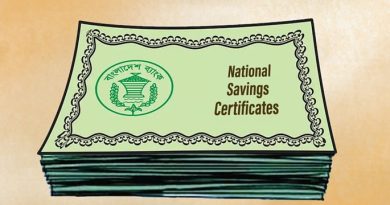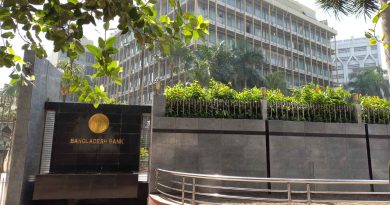Nearly a year after the “July Movement” of 2024 and the formation of an interim government, Bangladesh’s economy is showing signs of recovery and renewed momentum. Economists and market analysts note that reforms and targeted measures are helping to tackle deep-rooted challenges—such as falling reserves, volatile exchange rates, banking sector irregularities, revenue shortfalls, and high inflation.
Key indicators now show promising progress: foreign exchange reserves have rebounded, remittances hit a record high, and exports have grown significantly. Most notably, inflation has fallen to its lowest point in nearly three years. Despite these gains, analysts caution that risks remain, particularly around banking sector stability and sluggish private sector investment.
Reserves Rebound on Record Remittances
In June 2024, the country’s foreign exchange reserves dropped to $19.8 billion, the lowest in a decade. The government responded by doubling the remittance incentive from 2.5% to 5% and stepping up enforcement against illegal hundi channels. As a result, remittance inflows surged to an all-time high of $30.21 billion in FY2024–25, driving reserves up to $31.68 billion by year-end.
For the past 10 months, the central bank has not had to sell dollars to stabilize the market, while easing restrictions has improved access to dollars for importers.
Governor Dr. Ahsan H. Mansur, appointed after the July Movement, introduced greater transparency by regularly publishing reserve data. Combined with support from multilateral lenders and stricter enforcement, this has helped rebuild market confidence.
Still, some experts warn this recovery may be fragile. Dr. Zahid Hussain, former lead economist at the World Bank’s Dhaka office, noted that if illicit financial flows resurface, the pressure on reserves could quickly return.
Exchange Rate Stabilizes
A stronger reserve position and lower global dollar prices have reduced pressure on the local currency. Letters of credit (LCs) are now being settled at Tk123–124 per dollar, and banks buy dollars from exchange houses at Tk122.70. Lower import demand has also helped ease currency market strain.
Export Growth Led by Garments
Bangladesh’s exports rose 8.58% year-on-year to $48.28 billion in FY2024–25, with the garment sector again driving performance. Knitwear exports totaled $21.16 billion, while woven garments brought in $18.18 billion. Other products like plastics, leather goods, bicycles, and human hair also saw healthy growth, although June’s exports slipped by 7.55%, raising some concern.
Inflation Falls to Three-Year Low
High food inflation exceeding 12% in mid-2024 weighed on households and businesses. The government cut import duties, increased subsidies, and strengthened distribution through TCB (Trading Corporation of Bangladesh). These steps brought inflation down to 8.48% in June 2025—the lowest since mid-2022—according to Bangladesh Bureau of Statistics (BBS) data.
Food inflation dropped to 7.39%, its lowest in two years, while non-food inflation eased to 9.37%. Analysts attribute this to coordinated market monitoring and timely policy moves. However, they stress that sustained progress requires higher domestic production and better market efficiency.
Chief Adviser’s Press Secretary Shafiqul Alam noted that inflation had fallen from 10.48% in August 2024 to 8.48% in June 2025, with expectations of further declines.
Tax Administration Modernizes
The National Board of Revenue (NBR) has advanced digital reforms to simplify tax filing and payments. Taxpayers can now submit returns, pay VAT, and manage customs processes online. The “a‑Chalan” platform enables 24/7 payments, supporting faster trade. Tools like e-Return, the VAT Online System (VOSS), and ASYCUDA World have improved transparency.
Despite progress, challenges include limited digital literacy among taxpayers and gaps in technical capacity at field offices. Planned structural changes—such as splitting NBR into two specialized units and updating tax exemption lists—aim to reduce inefficiencies.
Banking Sector Undergoes Reform
Governor Dr. Ahsan H. Mansur has launched five major reforms:
- Consolidating weak banks: Encouraging mergers and foreign strategic investments.
- Money laundering investigations: Engaging international auditors to track $17 billion in suspected embezzlement.
- Unified exchange rate: Ending multiple rates to stabilize the currency market.
- Governance improvements: Enhancing transparency in bank ownership and oversight of insider lending.
- Legal reforms: Drafting laws to reinforce the central bank’s independence.
Pilot risk-based supervision programs have shown positive early results, with full rollout set to begin this month.
Bangladesh Bank says these changes will enable earlier detection of financial and operational risks, leading to faster, targeted interventions.
Private Sector Credit Growth Still Lagging
Private sector credit growth remains below target, reaching only 6.95% in May 2025 against the central bank’s goal of 9.8%. Weak investor confidence and political uncertainty are key factors.
Non-performing loans (NPLs) have reached Tk4.2 trillion, about a quarter of total loans, straining bank liquidity and dampening lending capacity. Reduced imports of capital machinery further reflect sluggish investment appetite.
Sheikh Mohammad Maroof, MD of Dhaka Bank, observed that credit will pick up only when businesses regain confidence, noting that political instability directly impacts lending. Syed Mahbubur Rahman, MD & CEO of Mutual Trust Bank, highlighted that high NPLs and rising government borrowing are crowding out private credit.
Former FBCCI President Abdul Awal Mintoo added that inflation has eroded household savings, while political unrest disrupts production and heightens default risks.
CPD’s Executive Director Dr. Fahmida Khatun pointed out that limited liquidity and high costs are discouraging entrepreneurs, slowing growth and employment.
Still, bankers see hope: recent budget measures, improved law and order, and stable trade could support a moderate recovery in private sector lending in coming months.
Focus on Investment and Jobs
The government has launched new skills development programs and an “investment window” with BIDA to help entrepreneurs. Incentives for foreign investors are under review, but political uncertainty continues to limit private sector investment.






